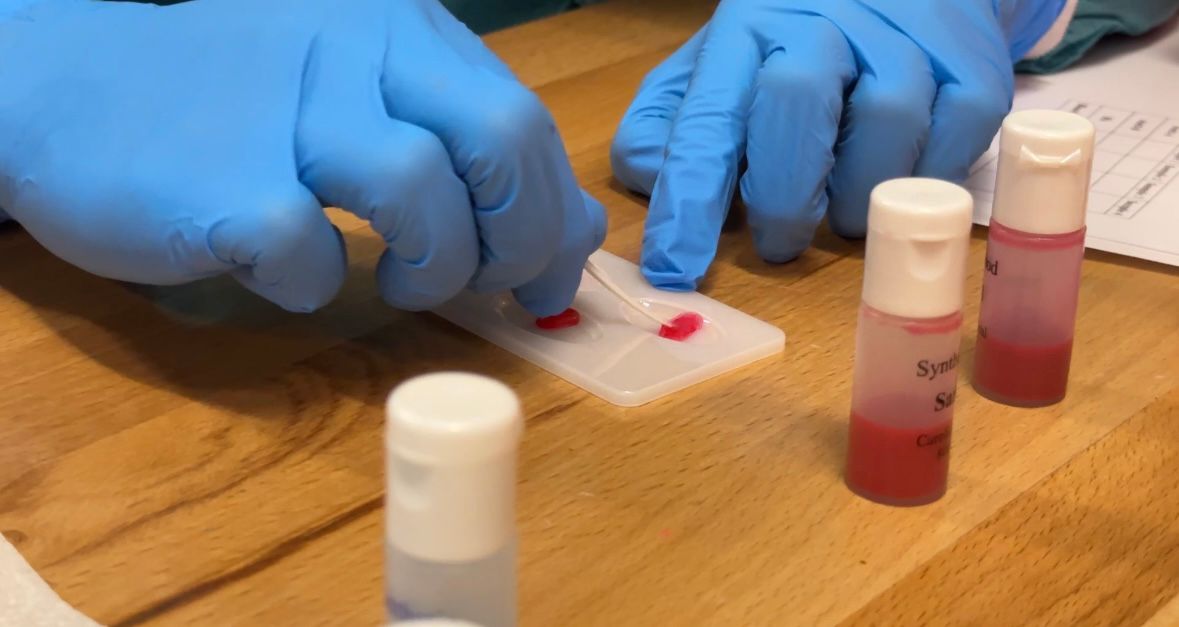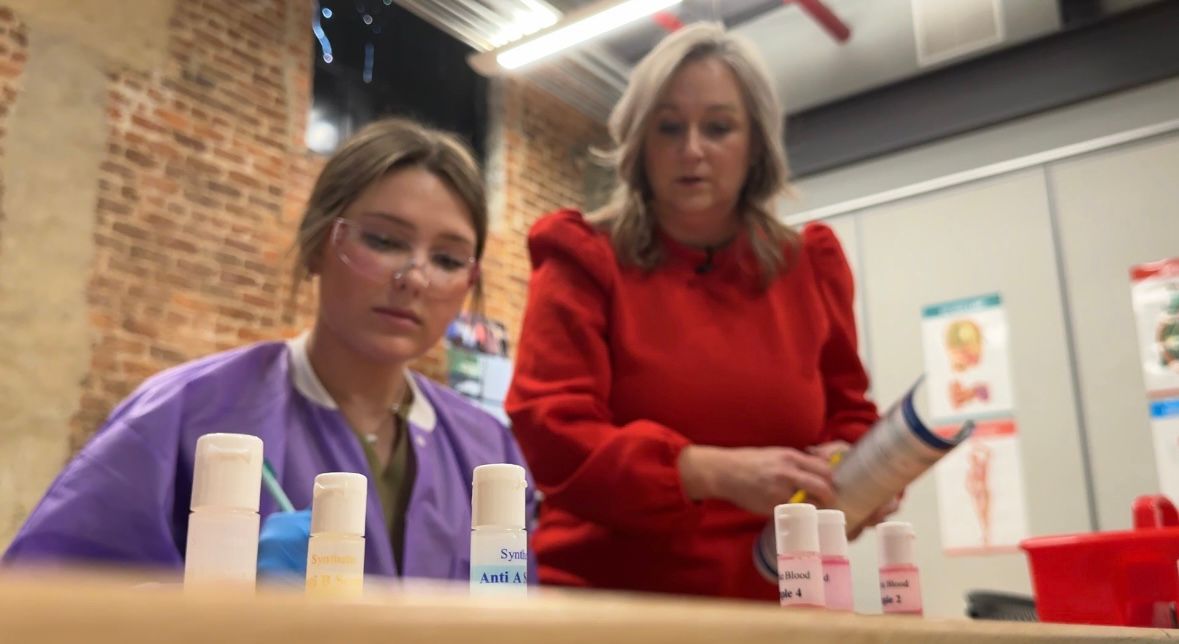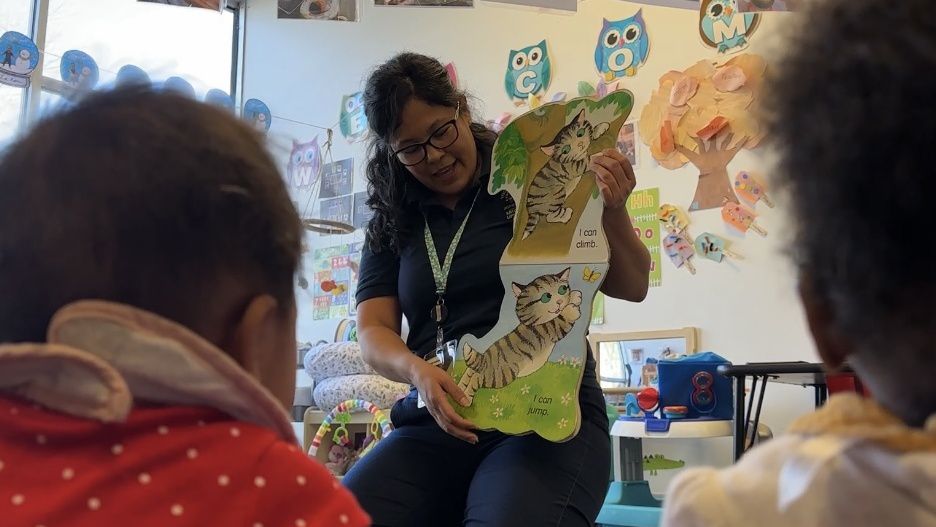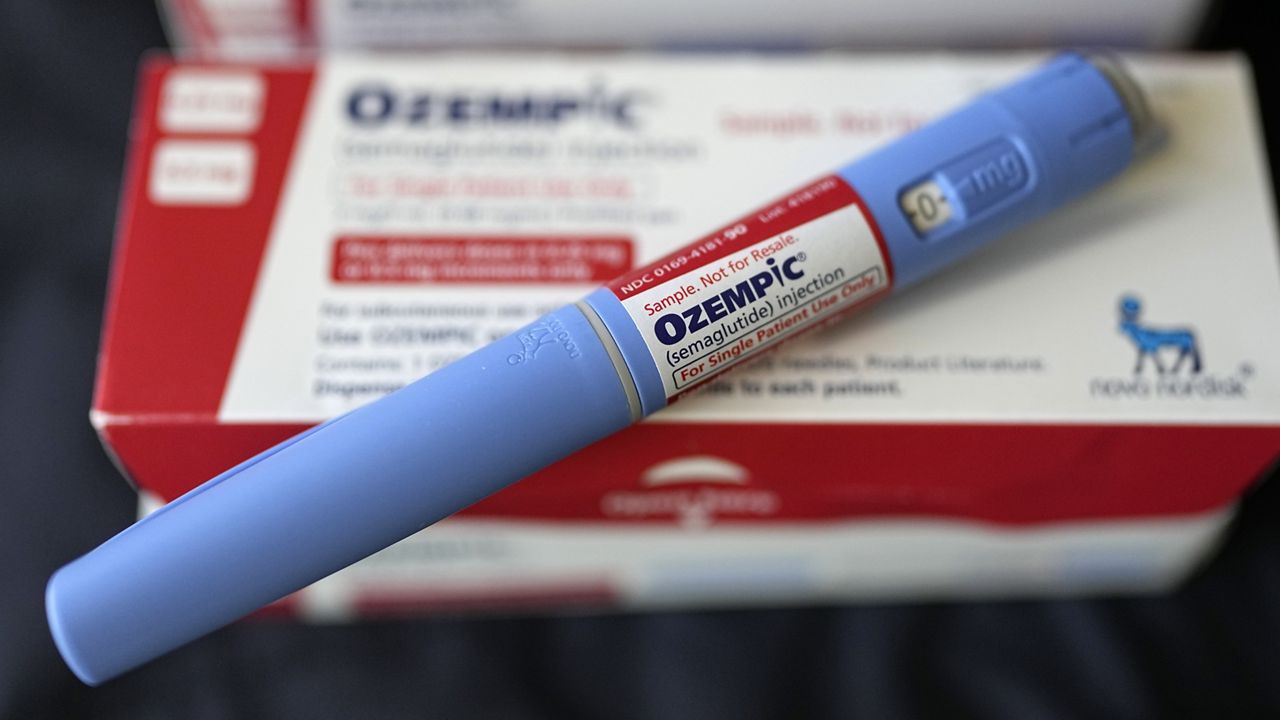ROXBORO, N.C. — An uptick in respiratory illnesses is causing a lull in blood and platelet donations in North Carolina this winter, according to the American Red Cross.
Over 2,000 cases of respiratory illnesses, including the flu, have been reported at hospital admissions within the state this year, records show.
What You Need To Know
- January is National Blood Donor Month, encouraging more people to donate as the winter seasons sees blood shortages
- The American Red Cross says every two seconds, someone in the U.S. needs blood
- If you are experiencing cold or flu symptoms, you cannot donate blood
- N.C. has seen 50 deaths from the flu since the start of the flu season, with more than half of the deaths being from this year
Jill Clayton, a teacher at Roxboro Community School, was called to teaching after working in a clinical laboratory for 22 years, working with blood.
“My goal in the classroom is to hopefully inspire my students to go into the medical field, but also to provide opportunities for them to serve in the community and help others,” Clayton said. “That's why the blood donations are so important for me, for them not only to be able to participate, but also to understand the significance of the blood drives.”

Clayton is a HOSA advisor, working with her biotech health science students on a synthetic blood lab. She teaches students not only the significance of blood donations but also the science behind it, including blood types patients can receive.
“You want to make sure that when you transfuse a patient with blood that you're giving them compatible blood, because if not, it can be catastrophic for the patient,” Clayton said.
It is important for students who are interested in the medical field to understand the capability, and to know who can and cannot donate blood.
“If you have a fever, if you have a productive cough, anything like that, you have the flu. You have, a bacterial infection where you're on an antibiotic. You can't give blood,” Clayton said.
The American Red Cross says winter months are particularly challenging for blood donations because of seasonal illness, inclement weather and busy holiday schedules.
With the winter storms that have swept across the county and the wildfires in California, the American Red Cross said around 500 donation drives have been canceled, resulting in more than 10,000 uncollected blood and platelet donations. Platelets are often given to burn victims, trauma victims, cancer patients and more.

Those who are sick with a cold or flu cannot donate, as it could lower the donors immune system and could spread sickness to those collecting the samples.
North Carolina has seen respiratory viruses in over 40% of emergency department visits since the beginning of the year, according to NCDHHS. Since the start of the flu season in October of 2024, 50 adults have died from the flu in N.C., with over half of the deaths taking place this year.
“When you think about all of those things, it creates a shortage,” Clayton said.
The American Red Cross says while North Carolina is doing well with donations, the entire American Red Cross system is struggling to keep their supply up. Due to a combination of these events, health leaders are hoping for more donors across their locations. While the majority of blood stays within the state, the blood can be sent to other locations that need it more.
“If I'm willing to receive, I need to be willing to give,” Clayton said. “If I'm willing to receive, I need to be willing to give,” Clayton said.
Clayton says some of her family members have received blood in the past and is advocating for the younger generation, including her class, to get out and donate.
“Once a student or anyone has a successful blood donation. They're much more likely to want to donate again," Clayton said.
She has doubled the amount of donation drives held at the school, which now averages around 26 units of blood for every drive.
“Each time we collect one unit of blood, that saves three lives,” Clayton said.
To find out more on blood donation eligibility and donation centers near you, visit he American Red Cross website.









_Cropped)

